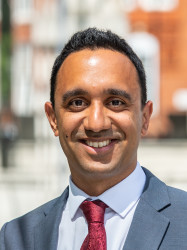BibTex format
@article{Alboksmaty:2021:10.1371/journal.pone.0248387,
author = {Alboksmaty, A and Kumar, S and Parekh, R and Aylin, P},
doi = {10.1371/journal.pone.0248387},
journal = {PLoS One},
pages = {1--17},
title = {Management and patient safety of complex elderly patients in primary care during the COVID-19 pandemic in the UK—Qualitative assessment},
url = {http://dx.doi.org/10.1371/journal.pone.0248387},
volume = {16},
year = {2021}
}

